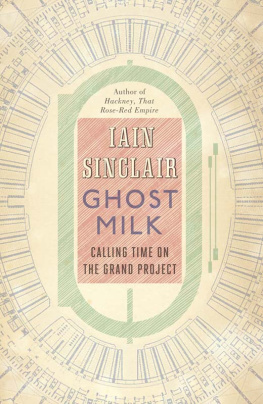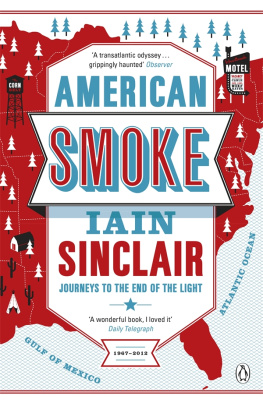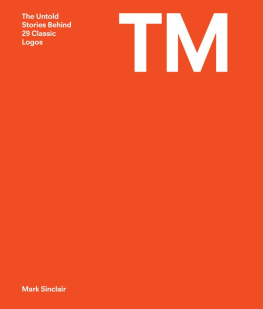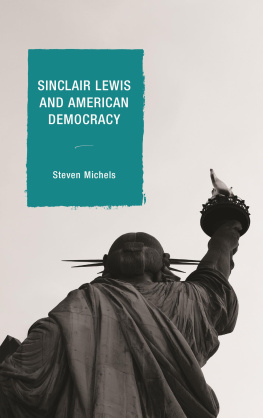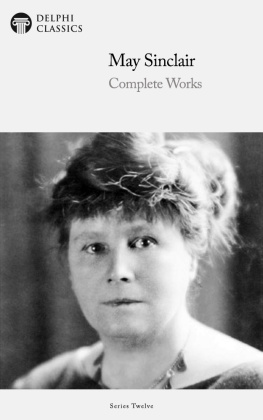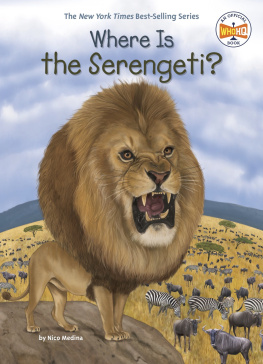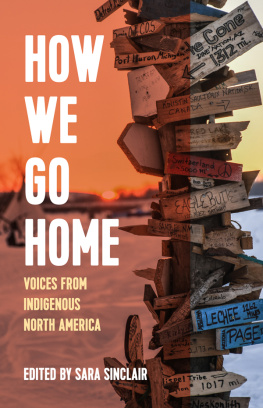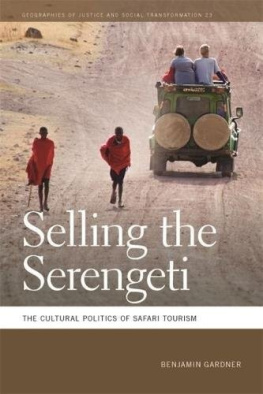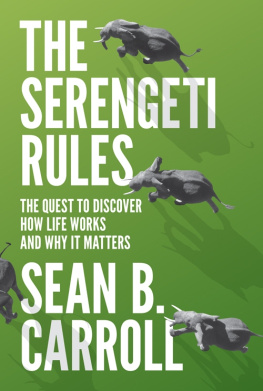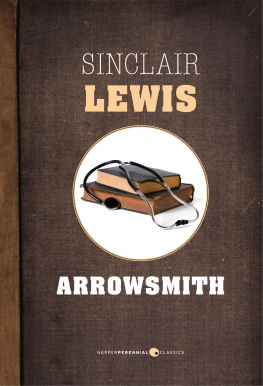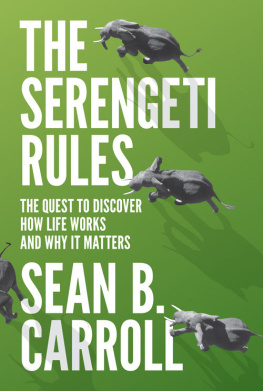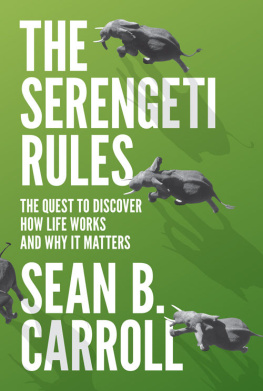Sinclair - Serengeti Story
Here you can read online Sinclair - Serengeti Story full text of the book (entire story) in english for free. Download pdf and epub, get meaning, cover and reviews about this ebook. year: 2012, publisher: Oxford University Press, genre: Detective and thriller. Description of the work, (preface) as well as reviews are available. Best literature library LitArk.com created for fans of good reading and offers a wide selection of genres:
Romance novel
Science fiction
Adventure
Detective
Science
History
Home and family
Prose
Art
Politics
Computer
Non-fiction
Religion
Business
Children
Humor
Choose a favorite category and find really read worthwhile books. Enjoy immersion in the world of imagination, feel the emotions of the characters or learn something new for yourself, make an fascinating discovery.

- Book:Serengeti Story
- Author:
- Publisher:Oxford University Press
- Genre:
- Year:2012
- Rating:5 / 5
- Favourites:Add to favourites
- Your mark:
- 100
- 1
- 2
- 3
- 4
- 5
Serengeti Story: summary, description and annotation
We offer to read an annotation, description, summary or preface (depends on what the author of the book "Serengeti Story" wrote himself). If you haven't found the necessary information about the book — write in the comments, we will try to find it.
Serengeti Story — read online for free the complete book (whole text) full work
Below is the text of the book, divided by pages. System saving the place of the last page read, allows you to conveniently read the book "Serengeti Story" online for free, without having to search again every time where you left off. Put a bookmark, and you can go to the page where you finished reading at any time.
Font size:
Interval:
Bookmark:
life and science in the worlds greatest wildlife region
ANTHONY R. E. SINCLAIR


Great Clarendon Street, Oxford, OX2 6DP,
United Kingdom
Oxford University Press is a department of the University of Oxford.
It furthers the Universitys objective of excellence in research, scholarship,
and education by publishing worldwide. Oxford is a registered trade mark of
Oxford University Press in the UK and in certain other countries
Anthony R.E. Sinclair 2012
The moral rights of the author have been asserted
First Edition published in 2012
Impression: 1
All rights reserved. No part of this publication may be reproduced, stored in
a retrieval system, or transmitted, in any form or by any means, without the
prior permission in writing of Oxford University Press, or as expressly permitted
by law, by licence or under terms agreed with the appropriate reprographics
rights organization. Enquiries concerning reproduction outside the scope of the
above should be sent to the Rights Department, Oxford University Press, at the
address above
You must not circulate this work in any other form
and you must impose this same condition on any acquirer
British Library Cataloguing in Publication Data
Data available
Library of Congress Cataloging in Publication Data
Data available
ISBN 9780199645527
Printed in Great Britain by
Clays Ltd, St Ives plc
Links to third party websites are provided by Oxford in good faith and
for information only. Oxford disclaims any responsibility for the materials
contained in any third party website referenced in this work.
Throughout my life there have been two people who have supported me. The first is my brother, Tim, who shared my life in the early years as we grew up in tropical Africa and with whom I have kept in close contact thereafter as we went our different ways, he and his wife Wilma to New Zealand and myself to Australia and Canada. The second is my wife, Anne, whom I shall call Anna. We were married at the age of 21 and she has effectively shared all my working life in Africa, and she appears frequently in this book.
Other people who feature largely in these stories include Mike Norton-Griffiths, a British colleague in our early years in Serengeti, an extrovert with a wonderful sense of humour and huge generosity. Another is John Fryxell, a tall wiry Canadian with great intellect. I first met him when he was an undergraduate in my ecology class of 1975 and we have been colleagues ever since. He conducted his doctoral work on the migrations of white-eared kob in Sudan, which features prominently in these stories. He has developed an international reputation as a mathematical ecologist, and he has taken over much of my research in Serengeti. Third is Simon Mduma, a quietly spoken and gentle Tanzanian who became my masters student in 1988 and continued after his doctorate first to run our research in Serengeti and then to direct all wildlife research in Tanzania as a senior member of the Tanzanian government. Ray Hilborn, at the University of Washington, has been one of my closest collaborators for more than thirty years. He is also a computer modeller of great skill, and although in his other life works on fisheries harvesting, where he has built an international reputation, he has worked with me on the issues of bushmeat harvesting by local peoples around Serengeti. There are of course many others who will make their appearance in these stories and we will meet them as we come to them. For reasons that will become obvious I have had to change the names of some of the participants.
Several people have helped me with the library work as background for the stories. Of the scientists in particular I would like to thank George Schaller and Hans Kruuk, who acted as mentors; Hugh Lamprey, who directed the Serengeti Research Institute; and Colin Pennycuick who guided my flying experience in the 1960s and 1970s. Mary Leakey helped me in the 1970s and 1980s and provided a refuge at a critical moment. Close colleagues Craig Packer, Andy Dobson, Sarah Durant, and Sarah Cleaveland worked with me in the 1990s and 2000s. Peter Arcese and his wife, Gwen, guided the research in the late 1980s and early 1990s and were heroes during the bandit attacks. Patricia Moehlman found Simon Mduma for me. All my students contributed to our understanding of the Serengeti, in particular John Fryxell, Holly Dublin, Greg Sharam, Ephraim Mwangomo, Ally Nkwabi, John Bukombe, and Grant Hopcraft. But above all is Simon Mduma, who has looked after and administered our Serengeti Biodiversity Program since 1996.
On the National Parks sides, Myles Turner taught me much about Serengeti when I first arrived. Kay Turner, Myles Turners wife, has been a close friend over the decades; she provided important information on the history of Serengeti in the 1950s. Chief Park Warden (CPW) Sandy Field did much of the flying for me in the 1960s, as did Steve Stephenson in the early 1970s. CPW David Babu had to cope with the dark days of the border closure; we became close friends and he helped us in many ways with logistics of avgas fuel, vehicles, and food. Following him was Justin Hando about whom I write more in the stories, so I will simply say he kept us informed and consequently alive when the bandits were rampant. Of course there were many wardens and rangers who helped and protected us and I have not forgotten them. They worked under very difficult conditions with good humour. The Tanzania National Parks and Tanzania Wildlife Research Institute have generously given permission and help over the decades for our research. I thank the many Directors for their support.
Simon Mduma kindly read and corrected . I thank Rhodes House and the Bodleian Library at Oxford University for the use of their facilities, and the archivist Lucy McCann for help in finding material. Terry McCabe helped with the history of the Maasai. Kris Metzger has been working with me since her PhD in 1999, and in particular as a Research Associate since 2005; she has been invaluable in putting together the data and creating the maps. Peter Arcese and Frommann/Laif, Germany, kindly provided photos. Alistair Blachford and Andy LeBlanc at University of British Columbia (UBC) worked their magic to improve my own photographs. Also at UBC my colleagues Charles Krebs and Alice Kenney have helped so much with data analysis over the years; Judy Myers and Jamie Smith provided constant support.
Our work also depended on the generous help of friends in Arusha who provided a base for us. Bob and Kathy Gillis from the Canadian Wheat Scheme were our safe haven in the 1980s. Jo Driessen and Judith Jackson have provided a home for us since 1999. Our caretaker in Seronera, Juma Pili and his wife, Mama George, have worked for us since 1988 with unquestioning loyalty, even when JP, as we call him, was attacked by the bandits. Stephen Makacha first worked for me in 1967 and for many years thereafter; after two decades away he came back to work for us in 1998 until he retired in 2007; and now his son Saba has taken over. Joseph Masoy has been our most reliable and willing field assistant for nearly a decade. In Canada, I should mention Drs Stephen Kurdyak and John Mancini, who have kept me going all these years.
Font size:
Interval:
Bookmark:
Similar books «Serengeti Story»
Look at similar books to Serengeti Story. We have selected literature similar in name and meaning in the hope of providing readers with more options to find new, interesting, not yet read works.
Discussion, reviews of the book Serengeti Story and just readers' own opinions. Leave your comments, write what you think about the work, its meaning or the main characters. Specify what exactly you liked and what you didn't like, and why you think so.


